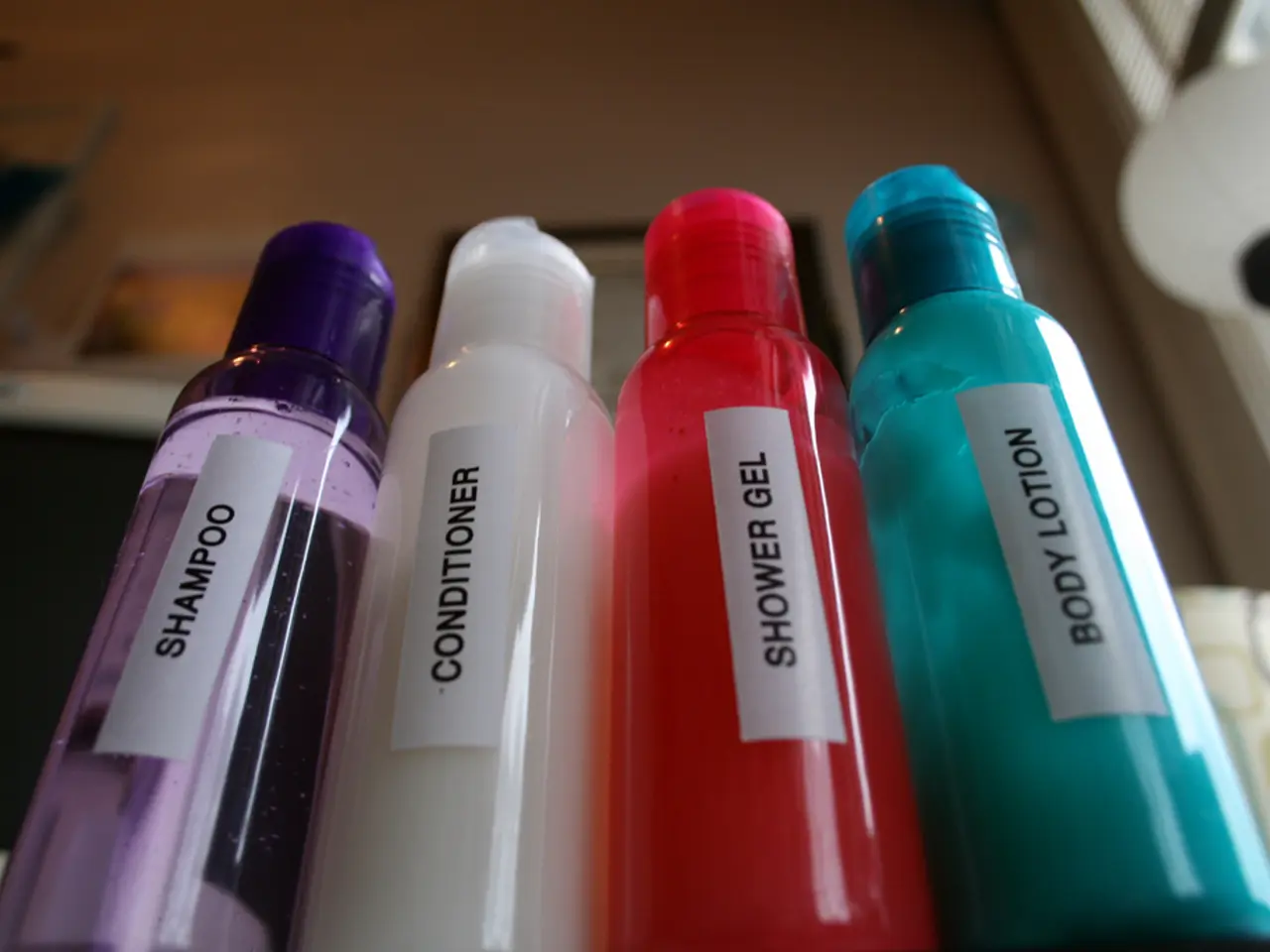Optimized Skin Care Regimen: A Comprehensive Guide
In the realm of skincare, a growing trend is emerging: the shift towards natural and non-toxic alternatives. These alternatives, derived from plant sources, amino acids, and advanced botanical technologies, are gentle, effective, and offer a healthier choice for skin health.
Protecting the Barrier: The Stratum Corneum
The outermost skin layer, known as the stratum corneum, acts as a protective barrier, shielding our underlying tissues from pathogens, pollutants, and harmful UV radiation. This layer is built primarily of keratinocytes, the dominant cells, which are fortified with the keratin protein.
Embracing Natural Alternatives
Some common skincare ingredients, such as Hexapeptide-9 and Ascorbyl Tetraisopalmitate, have their natural and non-toxic counterparts. For instance, Bakuchiol, a natural antioxidant, boasts anti-aging and soothing properties, reducing wrinkles and improving skin firmness and texture. It serves as a gentle alternative to peptides and retinol-like ingredients.
Similarly, plant collagen fragments, derived biomimetic to human collagen, visibly lift skin and improve sagging and volume, akin to peptide effects on skin firmness. Vitamin C from natural sources and antioxidants, such as ectoin, astaxanthin-rich micro-algae, or alpine plant extracts, offer natural brightening and anti-aging benefits, similar to Ascorbyl Tetraisopalmitate.
Hydration and Volume Restoration
Next-generation forms of hyaluronic acid, combined with natural mineral complexes, can be used as natural hydrating agents, similar to biocellulose’s moisturizing and skin-repairing properties. Additionally, L-ornithine, a natural non-essential amino acid, visibly plumps and improves skin volume, potentially offering a peptide-like function.
The Importance of Understanding Skin
Understanding and trusting in your skin's natural abilities can lift the time and financial burden of an elaborate skincare routine. The skin sheds millions of dead cells every day, a process known as desquamation, which balances cell production and loss, ensuring our skin remains cleansed and functional without the use of cleansing products or chemical peels.
The Pitfalls of Over-Care
Bombarding your skin with a dozen serums won't magically turn you into a dewy goddess; instead, you'll get product buildup, clogged pores, and dull skin. Adding excessive skincare products can disrupt the skin's delicate equilibrium, leading to dryness, redness, and increased sensitivity. Sometimes, a few skincare products are all you need, or none at all.
The Skincare Market: A Growing Industry
The skincare market is expected to have a global growth of $109.71 billion to $167.22 billion by 2030. With this growth comes an increased need for transparency and education, ensuring consumers make informed decisions about the products they choose.
Navigating the Skincare Landscape
Identifying your skin type - whether it is oily, dry, a combination of oily and dry, or sensitive - is crucial in starting your skincare journey. Social media platforms like Instagram, TikTok, and Youtube are centers of influencer marketing, where influencers like Hyram Yarbro, with over 5.9 million followers, review skincare products and give advice, potentially leading followers to make regrettable purchases.
Influencers on platforms like TikTok can collaborate with brands, making it difficult to distinguish between sponsored advertisements and honest opinions. Marketers use creative and persuasive advertisements to promote skincare products, further complicating the decision-making process for consumers.
However, by educating yourself about your skin and the natural alternatives available, you can make informed choices that promote healthier, more radiant skin. Remember, if a product stings, burns, or causes redness, it's probably not good for you. Embrace the power of nature and the understanding of your skin to embark on a skincare journey that is gentle, effective, and kind to your body.
- The newsworthy shift in skincare involves moving towards natural and non-toxic alternatives, like Bakuchiol, a plant-derived antioxidant.
- In an editorial piece on skincare, it's important to discuss the benefits of using plant collagen fragments, which offer a biomimetic alternative to peptides for skin firmness.
- Editorial opinions should also highlight the use of next-generation hyaluronic acid combined with natural mineral complexes, serving as natural hydrating agents.
- Understanding the importance of trusting in your skin's natural abilities, such as desquamation (the shedding of dead skin cells) can reduce the need for extensive skincare routines.
- Navigating the skincare market, influenced by social media and celebrity endorsements, requires education and an understanding of one's skin type to make informed, healthy choices in health-and-wellness, lifestyle, and fashion-and-beauty product selections.




